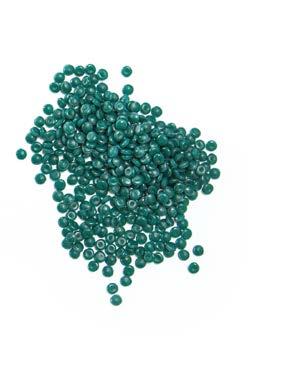Best Practice Bot tle-to-Bot tle
RCS GROUP PRODUCES FOOD CONTACT COMPLIANT RPET USING NEW VACUNITE SYSTEM ®
> OUTSTANDING QUALITY VALUES EXCEED EXPECTATIONS <
VACUNITE® is based on the combination
the market. The energy consumption for
RCS started to assemble the recycling plant
of VACUREMA® technology - which has
the entire production process from flakes
themselves. An EREMA team was then able
been proven over the past 20 years and
to the final pellets is only 0.35 kWh per
to be on site for commissioning.
EREMA has further developed for this
kg, which also complies with the internal
application - together with newly patented
sustainability standards at RCS.
vacuum-assisted Solid State Polyconden-
Following the commissioning of the
One of the first VACUNITE bottle-to-bottle systems started operation
NEW STANDARD FOR RECYCLED MATERIAL QUALITY
sation (SSP) technology, which was also
VACUNITE ® system with a throughput
in Werne/Germany in spring 2020. Using this system, the RCS Group,
RCS now operates seven days around-
specially developed by Polymetrix for this
capacity of up to 1.8 t/h, RCS can now
®
F
was not permitted to travel to Germany,
who already produce PET flakes for the non-food sector, is expanding their
the-clock to produce rPET that meets all
demanding application. All thermal pro-
offer its customers not only high-quality
plastics recycling division to include the production of food-grade PET recyclate
existing FDA and efsa specifications for
cess steps now take place in nitrogen and/
rPET flakes but also rPET pellets that are
for food and beverage packaging, films and blisters.
direct food contact and the often even
or vacuum atmosphere. Discolouration of
food contact compliant. The cooperation
stricter regulations of well-known beve-
flakes and pellets is largely eliminated and
between RCS and a leading PET bottle and
rage brands. It also clearly exceeds the
additives that could lead to undesired reac-
preform manufacturer illustrates how a
or the further processing of PET
few months previously will process up
Due to the strict travel restrictions during
customer's expectations. “Our analyses
tions in the melt are reliably removed. In
closed plastic cycle can be implemented,
flakes, the waste disposal and recy-
to 15,000 tonnes per year of PET flakes
the lockdown due to Corona in spring,
indicate that for all potential contaminants
addition to these quality factors, this new
taking the PET material obtained from the
cling group has built a new location
from the German deposit bottle collec-
commissioning the plant became an unex-
we achieve values that are significantly
technology minimises energy consumption.
German deposit system as an example.
on a 10,000 square metre site, creating
tion system and other European sources
pected challenge for everybody involved.
below our target values or are not detec-
The process requires 40 percent fewer com-
Alexander Rimmer says: “The recycling pro-
20 additional jobs. Here, the VACUNITE®
to make high-quality recyclate, vacuum-
The plant components had already been
table at all,” explains Alexander Rimmer,
ponents and consumes up to 36 percent
cess of PET bottles returned by consumers
recycling system launched by EREMA a
assisted and in a nitrogen atmosphere.
delivered, but since the installation team
Managing Director of the RCS Group.
less energy than comparable systems on
to deposit machines begins in our group
» Like our customers,
we are convinced that plastic recycling will not lose its importance as a significant contributor to the circular economy and that the demand for high-quality recycled pellets will continue to increase over the medium term. Christoph Wöss, Business Development Manager at EREMA Group
30
RECYCLING NEWS
RECYCLING NEWS
31










